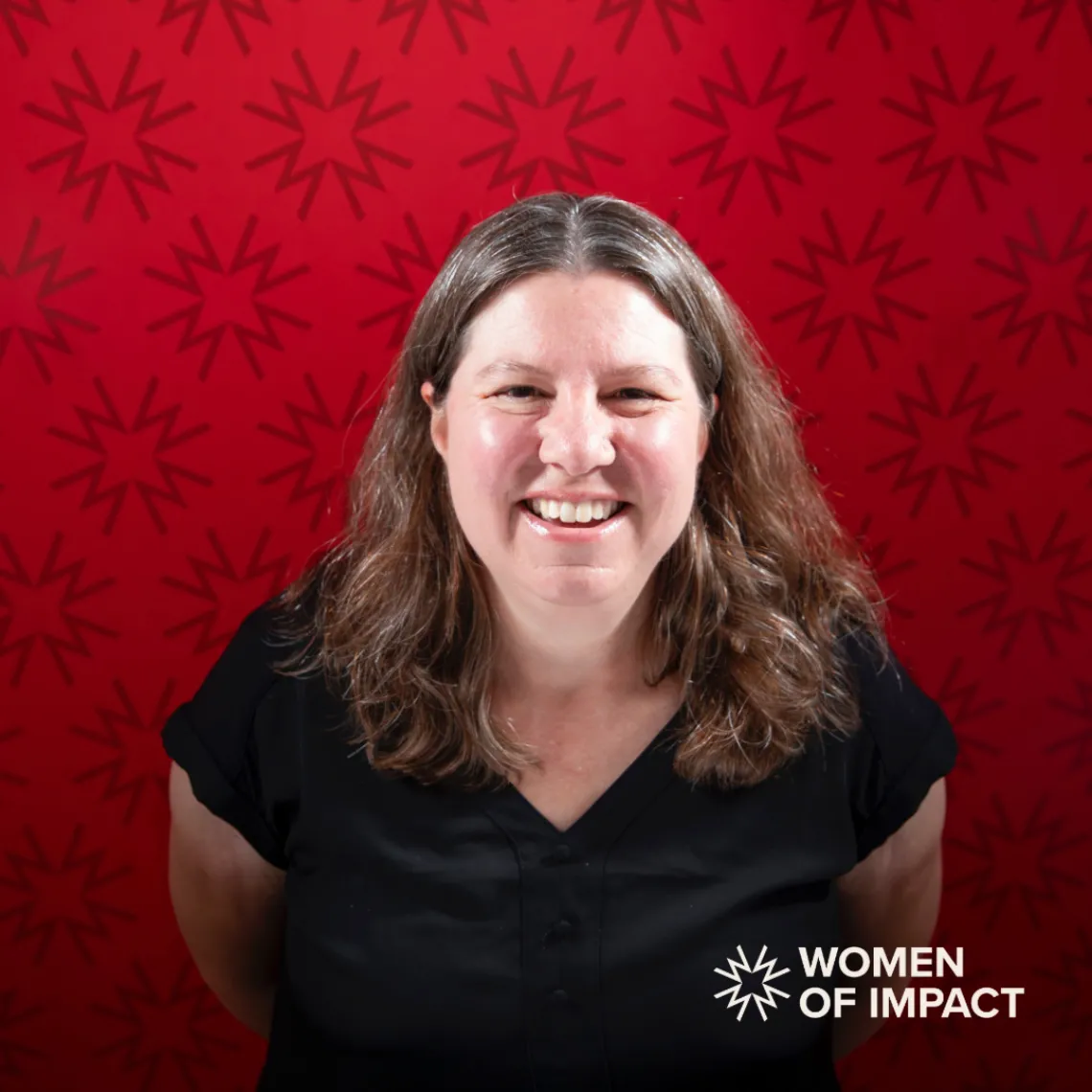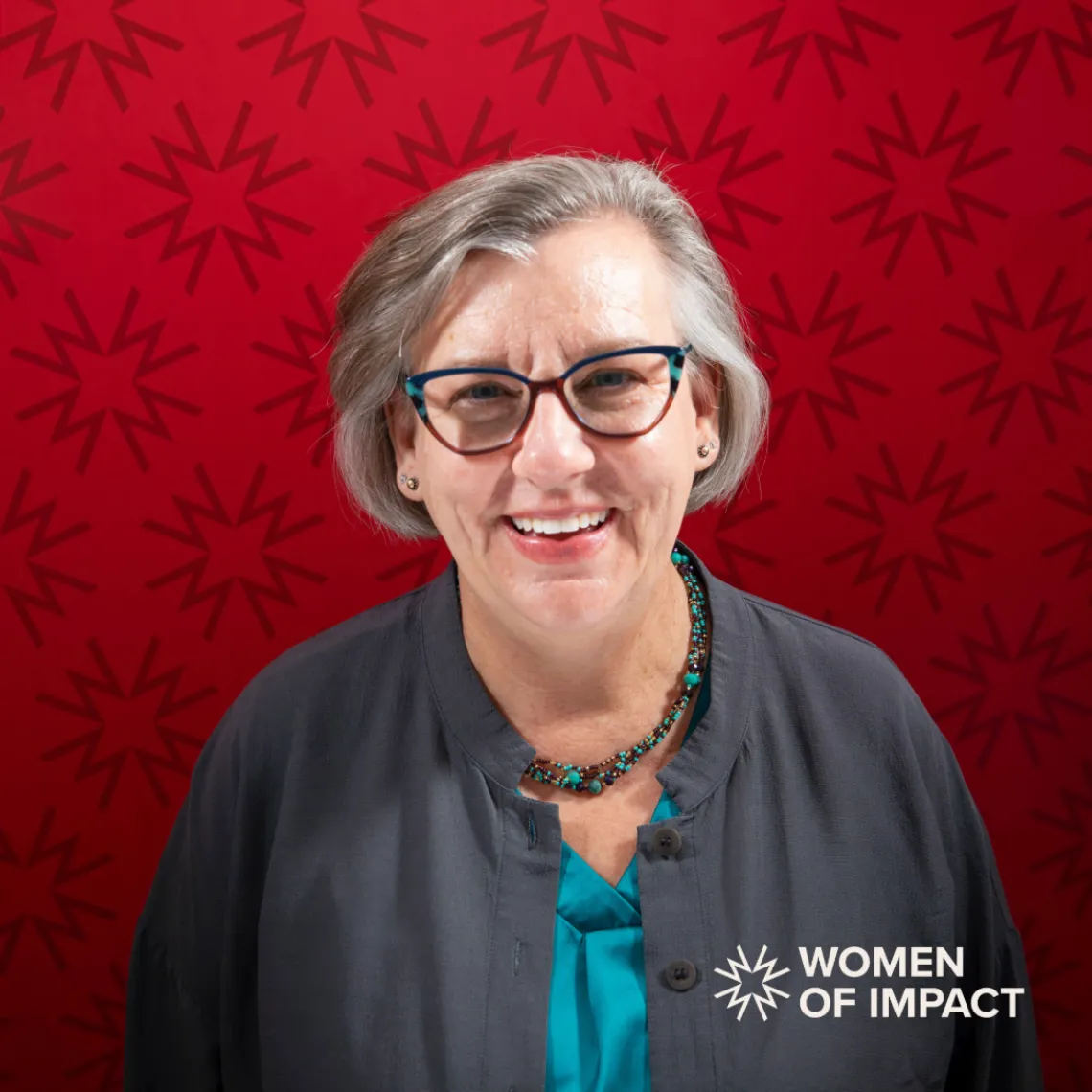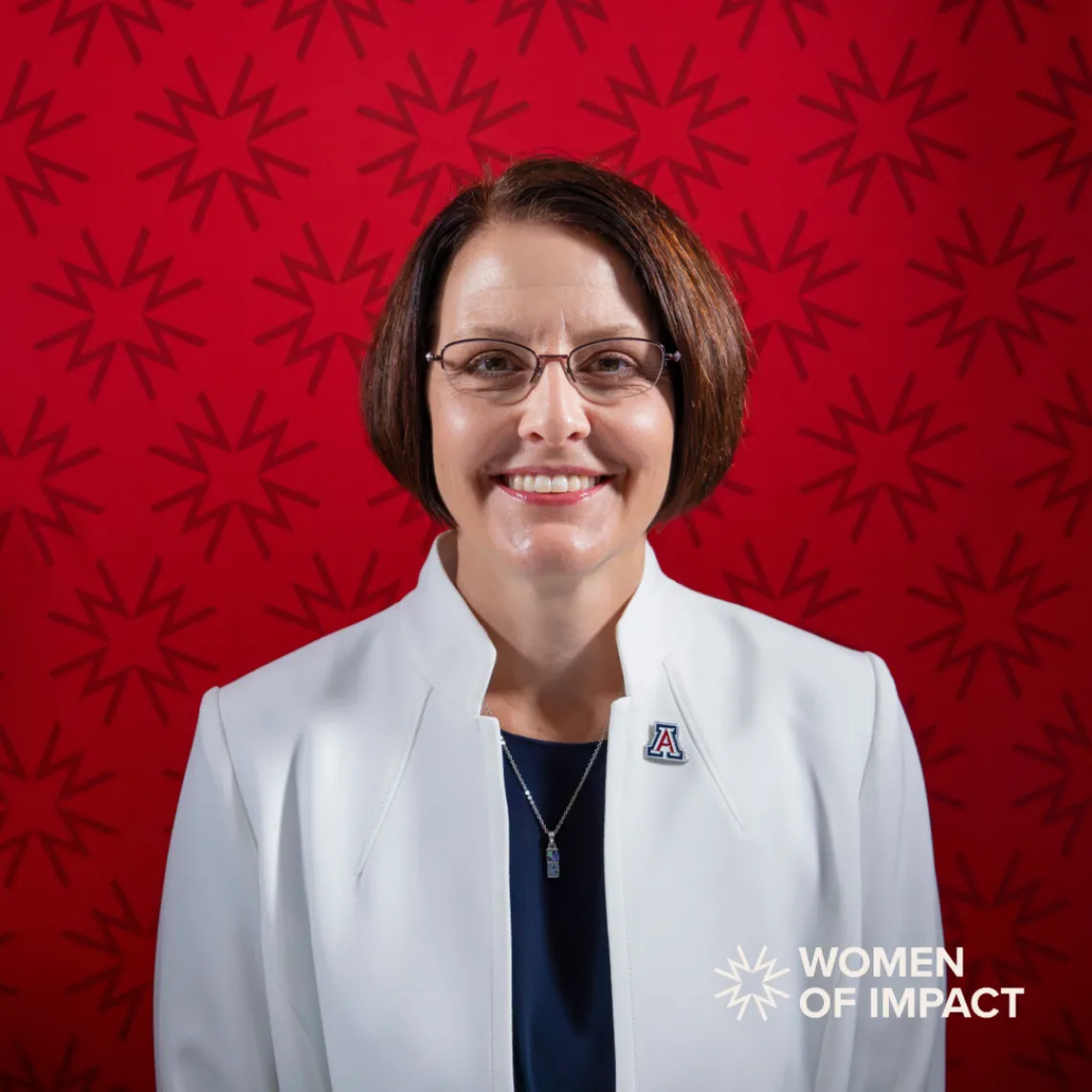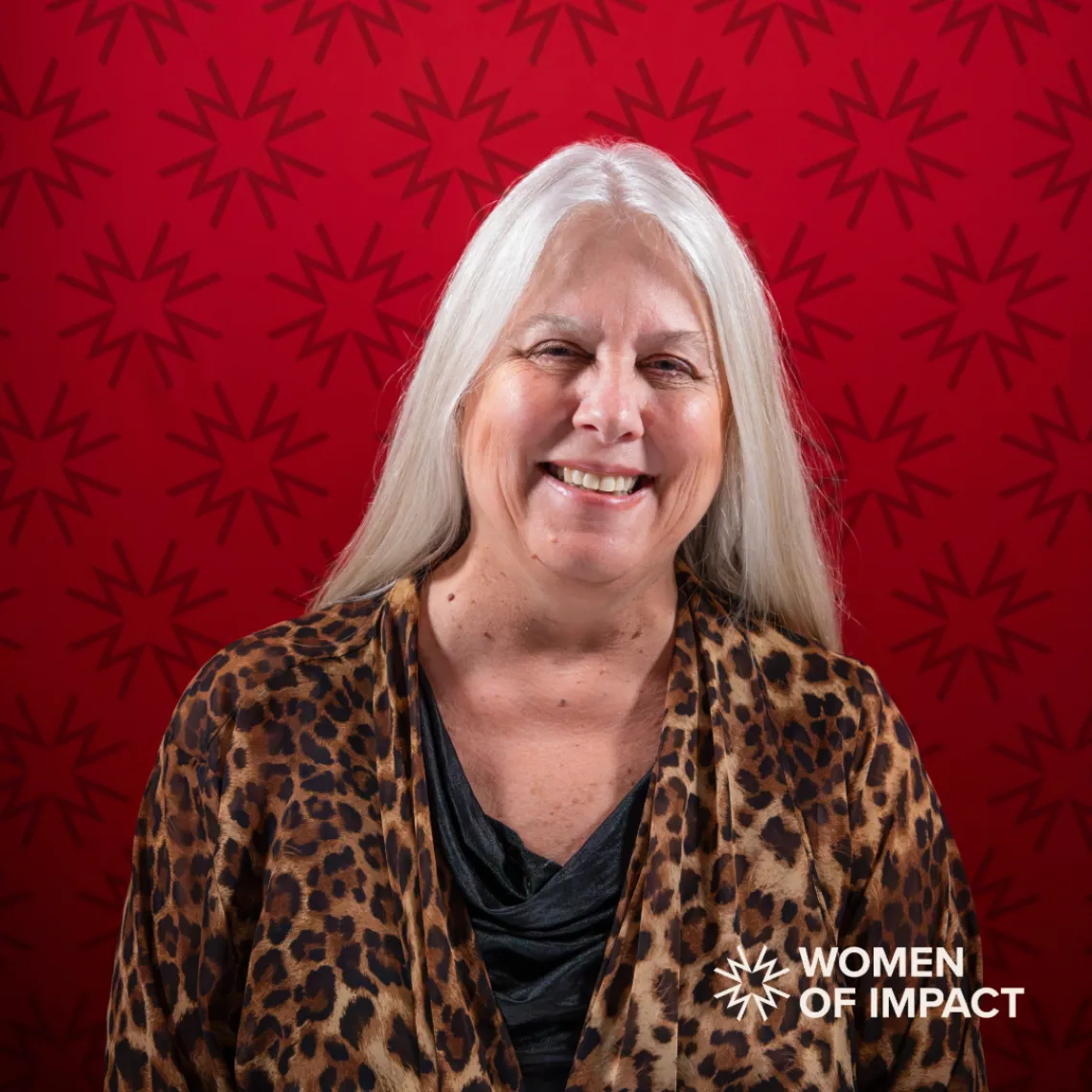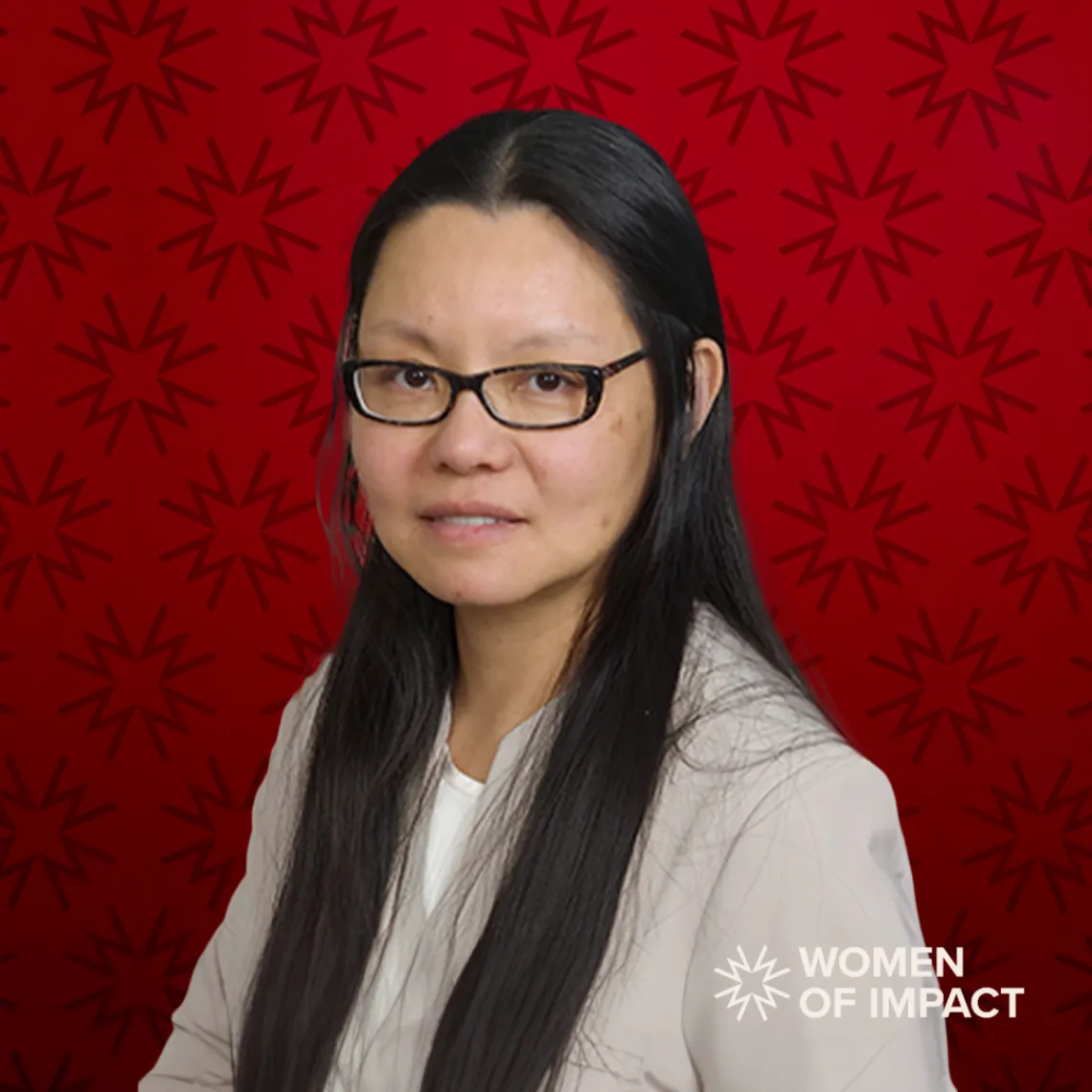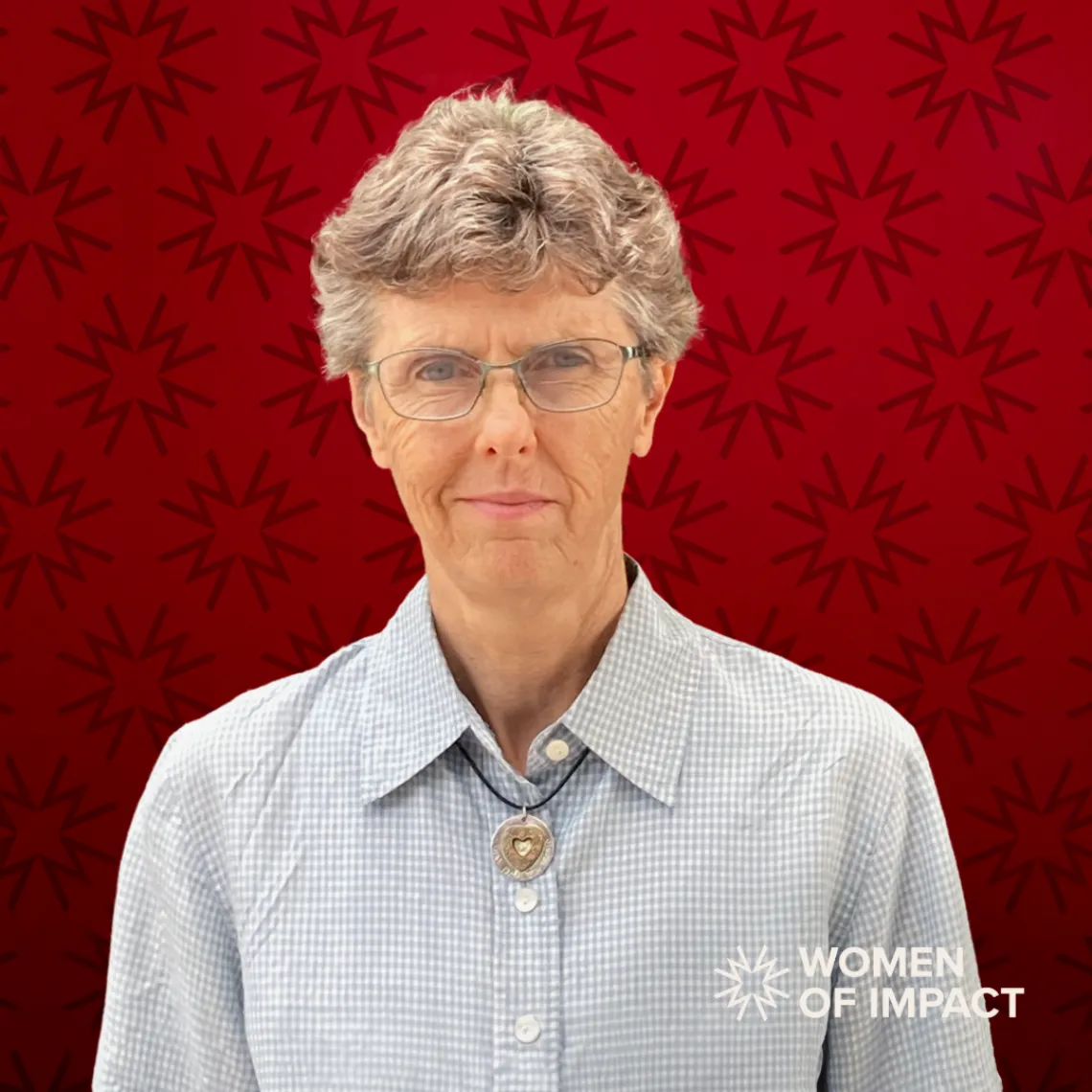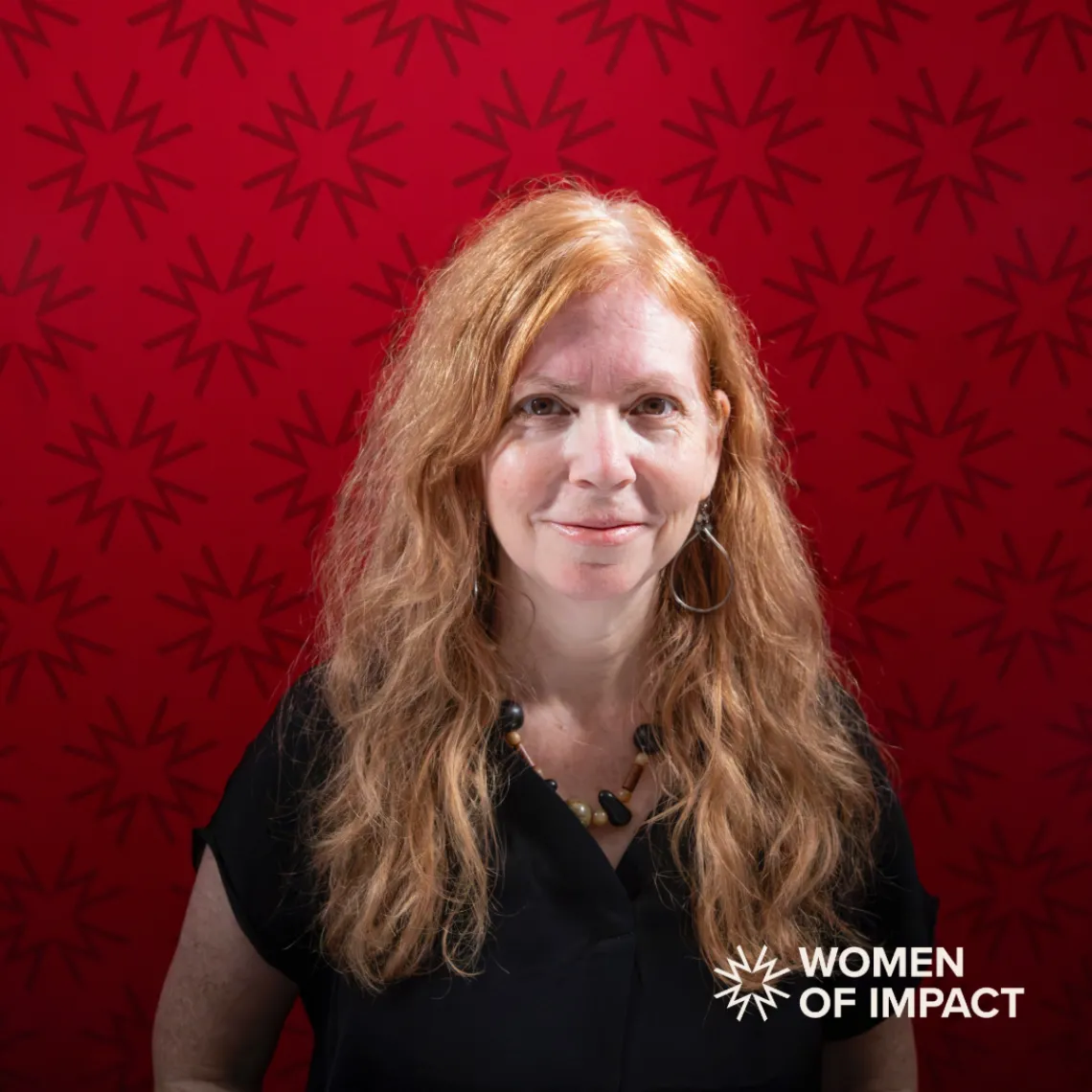Seven BIO5 members honored as 2024 Women of Impact
Congratulations to Erika Eggers, Lisa Elfring, Kirsten Limesand, Kathleen Rodgers, Janet Roveda, Lisa Shubitz, and Stacy Tecot on their awards.
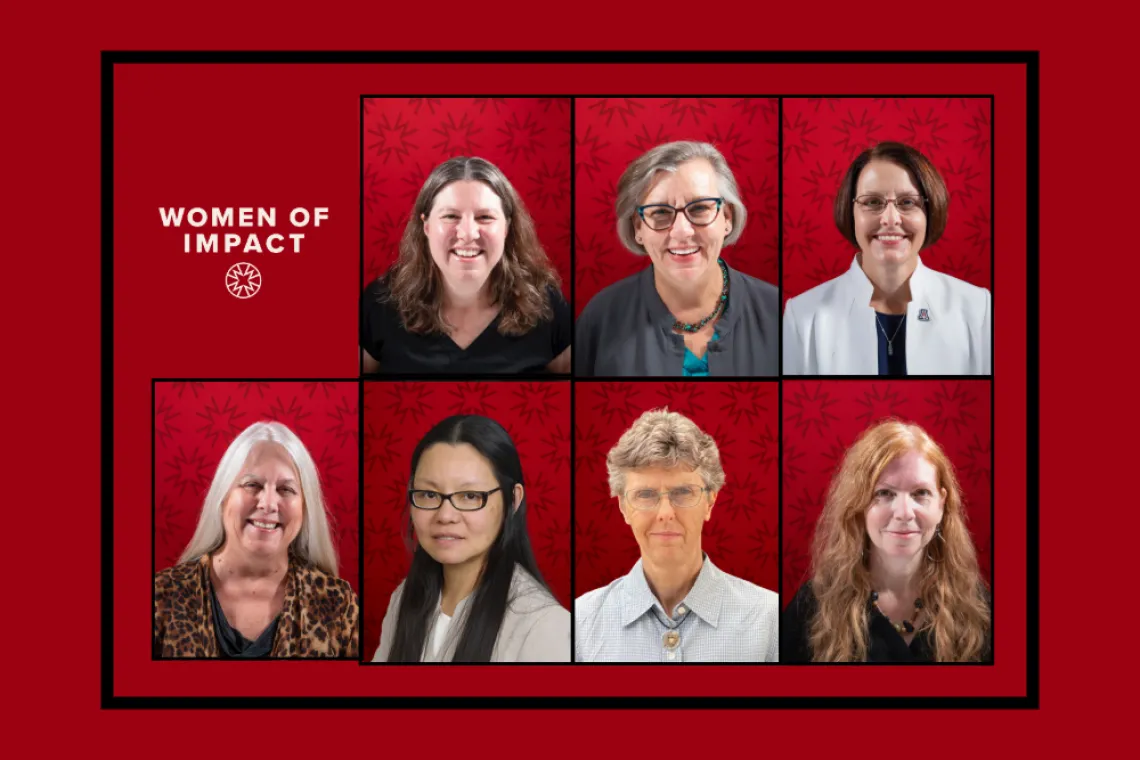
Each year, the University of Arizona Office of Research, Innovation & Impact (RII) leads the Women of Impact campaign and recognition event, inviting nominations from across the U of A community to honor exceptional faculty and staff who have made significant contributions to the university's reputation as a leading research institution.
Seven BIO5 members were selected as award recipients based on their dedication to the university’s mission and values, their remarkable skills in driving discovery and innovation, their impact on the community, and their commitment to empowering others. They will be honored at a private event on November 7.

